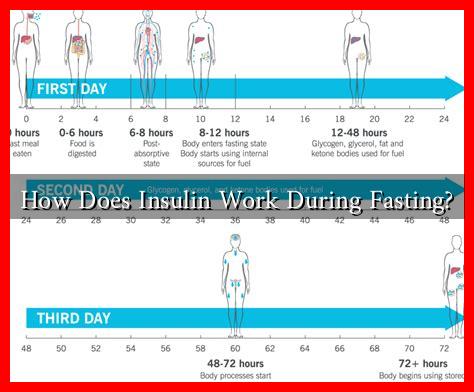-
Table of Contents
How Does Insulin Work During Fasting?
Fasting has gained popularity in recent years, not only as a method for weight loss but also for its potential health benefits. One of the key hormones involved in the metabolic processes during fasting is insulin. Understanding how insulin functions during fasting can provide valuable insights into the body’s energy management and overall health. This article delves into the role of insulin during fasting, its effects on metabolism, and the implications for health and wellness.
The Basics of Insulin
Insulin is a hormone produced by the pancreas that plays a crucial role in regulating blood sugar levels. It facilitates the uptake of glucose into cells, where it can be used for energy or stored for later use. When we eat, insulin levels rise to help manage the influx of glucose into the bloodstream. However, during fasting, the dynamics of insulin change significantly.
Insulin Levels During Fasting
During fasting, insulin levels decrease as the body shifts from using glucose as its primary energy source to utilizing stored fat. This process is known as ketosis, where the liver converts fatty acids into ketones, an alternative energy source for the brain and other tissues.
- Initial Phase: In the first few hours of fasting, insulin levels drop, allowing the body to begin mobilizing stored glucose (glycogen) from the liver.
- Extended Fasting: After approximately 12-24 hours, glycogen stores are depleted, and the body increasingly relies on fat stores for energy.
- Ketosis: Prolonged fasting (beyond 24 hours) leads to elevated ketone levels, which can provide up to 70% of the brain’s energy needs.
The Role of Insulin in Metabolism During Fasting
Insulin’s primary role during fasting is to facilitate the transition from a fed state to a fasted state. Here’s how it works:
- Glucose Regulation: As insulin levels fall, the liver releases glucose into the bloodstream to maintain blood sugar levels, preventing hypoglycemia.
- Fat Mobilization: Low insulin levels promote lipolysis, the breakdown of fat stores into free fatty acids, which can be used for energy.
- Protein Preservation: Insulin also plays a role in preserving muscle mass during fasting by inhibiting protein breakdown.
Case Studies and Research Findings
Numerous studies have explored the effects of fasting on insulin sensitivity and overall metabolic health. For instance, a study published in the journal *Cell Metabolism* found that intermittent fasting improved insulin sensitivity and reduced insulin levels in participants, leading to better blood sugar control and weight loss.
Another research study highlighted that individuals who practiced intermittent fasting experienced a significant reduction in body fat percentage and improved metabolic markers, including lower insulin levels and improved lipid profiles.
Implications for Health and Wellness
Understanding how insulin works during fasting can have profound implications for health and wellness. Here are some key takeaways:
- Weight Management: Lower insulin levels during fasting can facilitate fat loss, making it an effective strategy for weight management.
- Improved Insulin Sensitivity: Regular fasting can enhance insulin sensitivity, reducing the risk of type 2 diabetes.
- Metabolic Flexibility: Fasting promotes metabolic flexibility, allowing the body to efficiently switch between using glucose and fat for energy.
Conclusion
In summary, insulin plays a pivotal role in the body’s response to fasting. As insulin levels decrease, the body transitions from using glucose to utilizing fat stores for energy, promoting weight loss and improving metabolic health. Understanding these mechanisms can empower individuals to make informed decisions about their dietary practices and overall health. Whether through intermittent fasting or extended fasting, harnessing the power of insulin can lead to significant health benefits.
For more information on fasting and its effects on health, consider visiting resources like the National Institutes of Health.


